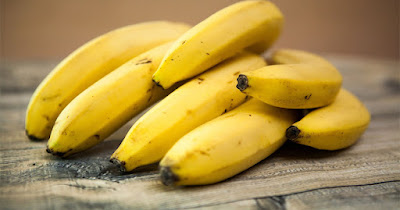Intro Banana Calories:
 |
| banana calories |
Banana calories are loaded with potassium, fiber, and Vitamin C; they’re also one of the most versatile fruits out there. That said, if you need to keep track of how many calories you’re eating (or want to know how many calories you’re burning), bananas can help out there too. Here’s an easy-to-follow chart on how many calories are in a banana
Banana & Potassium:
Bananas contain about 105 banana calories and have 3 grams of fiber (which helps to keep you full and can reduce your risk of heart disease). They’re also packed with essential nutrients including vitamin B6, C, and potassium. A medium banana contains just fewer than 400 mg of potassium about 25 percent of your daily needs. That might not sound like much but remember that many fruits contain much less potassium per serving. For example, one apple contains 115 mg and two medium oranges pack only 270 mg.
One medium-sized banana (7 inches long) has only 105 calories:
That’s less than one-third of what you would find in a similarly sized medium apple (246 calories) or medium orange (140 banana calories). One banana even has just 10 fewer calories than an average apple and only 26 fewer calories than an average orange. A bigger banana (8 inches long) contains 123 calories, still well below other options. For example, one 6-inch medium sweet potato has 150 calories and one 6-inch baked potato has 176. Even with its small size, a larger banana has slightly more protein than either of those options: 1 gram compared to 0.9 for sweet potatoes and 0.8 for potatoes.
Bananas also have 3 grams of fiber per fruit more than twice that found in sweet potatoes or most white potatoes. Bananas also contain a decent amount of potassium, magnesium, vitamin C, and B6. Bananas can be eaten whole as they are grown minus the peel! They can be mashed into a creamy consistency and used as a milk substitute on cereal or smoothies. They can be sliced up over ice cream or frozen yogurt for texture. They can be used as replacements for eggs in some recipes like pancakes or cookies if combined with flour first.
Why bananas are good for you:
Bananas are not only delicious, but they’re also one of our go-to fruits for their numerous health benefits. The nutrients packed into banana calories make them good for your heart, as well as good at helping you slim down and stay slim. Read on to find out why bananas top many healthiest food lists year after year! Bananas have more potassium than almost any other fruit (yes, even more than a banana), which can help lower blood pressure by preventing water retention. They also have significant amounts of vitamin C to fight off free radicals (highly reactive molecules that damage cells) that may lead to cancer or cardiovascular disease. Bananas also have significant levels of B vitamins, which play an important role in cellular energy production and metabolism.
Vitamins B6 and B12 found in bananas can help with maintaining healthy red blood cells, boosting moods, and keeping the immune system strong. Plus, the fiber content found in these fruits helps with digestion and maintaining bowel regularity. Most importantly though, bananas are great for fighting constipation because of their high water content and soothing effect on the digestive tract due to their high fiber content. On average a medium-sized banana has 105 banana calories; however, it all depends on how ripe it is too!
Health benefits of bananas:

banana calories
Banana calories have
plenty of health benefits. They’re an excellent source of potassium and
magnesium, two essential minerals that help to lower blood pressure and combat
stress. They’re also loaded with fiber to make you feel full longer and help
control your weight, and they can even boost brain function due to their level
of vitamin B6. A medium-sized banana has about 105 calories, so enjoy one as
part of a balanced diet every day!
The good news is that bananas are relatively low in calories at just over 100 per medium fruit, but they're high in many nutrients and contain no fat or cholesterol. There's some evidence to suggest consuming foods rich in potassium can reduce bloating by flushing excess water from your system, so it may be beneficial for individuals suffering from water retention issues too.



1 Comments
Good
ReplyDelete